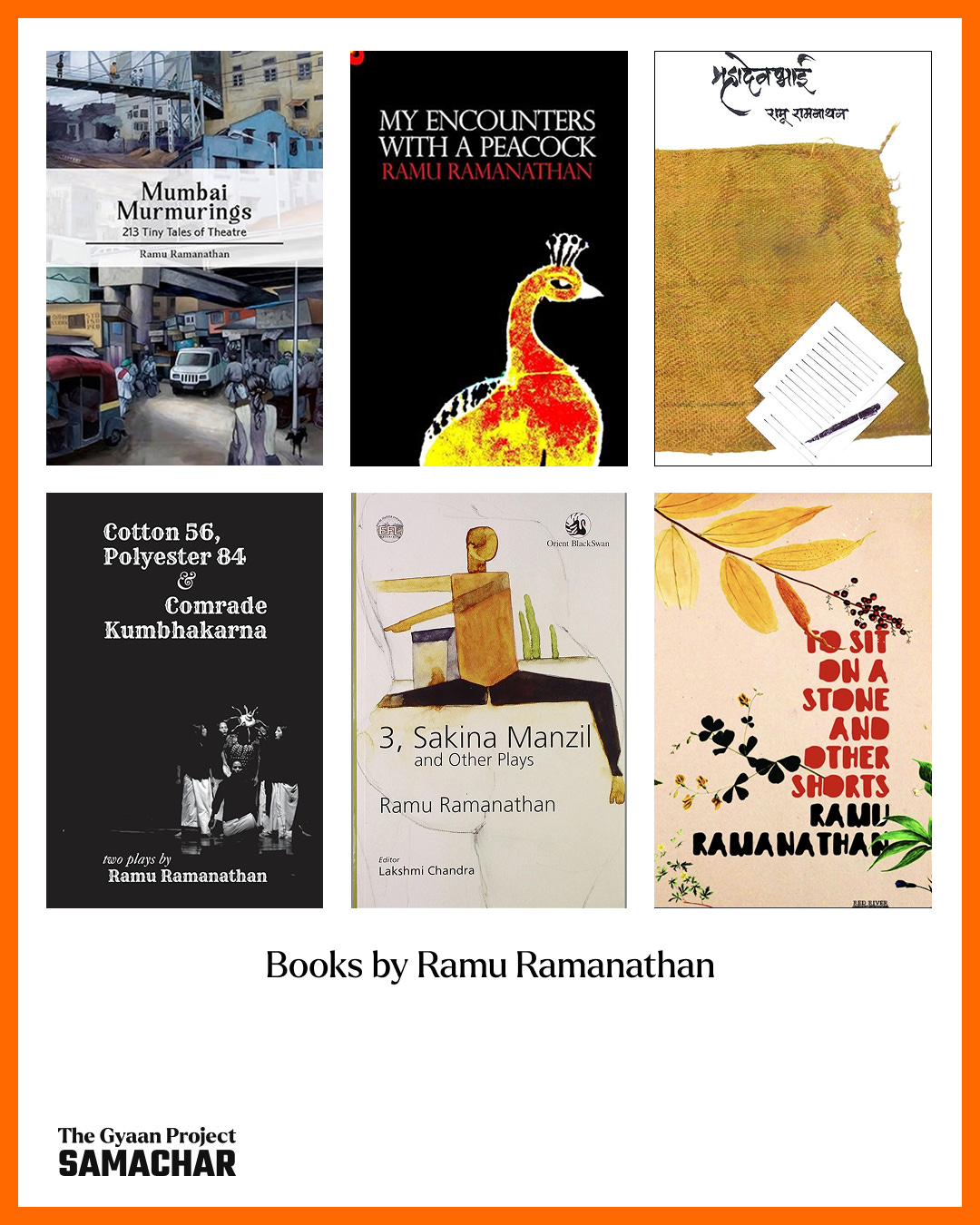The Playwright’s Craft: 4 Lessons from Ramu Ramanathan
Crafting plays through contradictions, society, subtext & questions
This Labour Day (Thu, 1 May 2025), we celebrate not just workers, but the spirit of building — one word, one idea, one performance at a time. Theatre has always been a mirror to the labour of real lives. And in this week’s Samachar (formerly ▶️ Audiogyan Ep.29), we bring you a few essential lessons for young playwrights and creatives, straight from a master storyteller.
Ramu Ramanathan is a Mumbai-based playwright and director known for his incisive, socially engaged theatre. His acclaimed works, including Mahadevbhai, Cotton 56 Polyester 84 and Comrade Kumbhakarna, explore India's political and cultural landscapes. Beyond the stage, he is also the editor of PrintWeek and WhatPackaging? magazines, contributing to the print industry for over 30 years.
1️⃣ Why do heroes need flaws?
Short Answer: Perfection is an illusion.
Long Answer: What makes characters unforgettable are their flaws, contradictions and doubts. When I read plays like Urubhanga or Ghashiram Kotwal, I see people torn between pride and pain, loyalty and betrayal. If you're admiring a character, look beyond their speeches. Look at their wounds. The real theatre is often inside the broken places.
Do share some movies or plays where you came across an interesting grey character? 👇
2️⃣ Does art influence society or does society influence art?
Short Answer: Chicken or Egg?
Long Answer: When we look at Western theatre — from Shakespeare to Ibsen, from Chekhov to Beckett — it’s clear that art and society shape each other. Shakespeare wrote about kings and queens because they ruled the world then. As the middle class rose, Ibsen and Chekhov shifted the stage into living rooms and drawing rooms, capturing quieter but equally fierce battles. Beckett came later and abandoned the old structures altogether, showing the confusion and absurdity that followed two devastating World Wars. Art reflects life, and life reflects art. They keep pushing and pulling each other, like a river carving its banks even as the banks guide its flow.
Listen to Varun Grover’s take on this question: Link
3️⃣ What's the secret weapon of powerful political theater?
Short Answer: Hidden subtext.
Long Answer: In colonial India, the British passed the Dramatic Performances Act to control theatre. Playwrights like Khadilkar found clever ways to fight back. In his play, Kichak Vadh, Khadilkar used mythological stories to hide political messages. On the surface, British officers saw just songs and dances. But Indian audiences understood the allegory of Kichak being the Lord Curzon, Draupadi being Mother India and Bengal, while the Pandavas were the Congress party with the moderates and extremists. Similarly, Karnad’s Tughlaq used history to show modern political failures. Great plays don't shout. They make not so apparent truth to establishment, evident to the audience.
Kissa Kursi Ka was a political satire which achieved this quite beautifully
4️⃣ What’s the most important thing to carry from a play?
Short Answer: Questions. Who pushed Humpty Dumpty?
Long Answer: Questions are both source and ultimate message of a good play. When PD James first heard the nursery rhyme “Humpty-Dumpty sat on a wall, Humpty-Dumpty had a great fall” her first question was “who did it?” And this question became the bedrock of all the crime thrillers that she wrote. Similarly, When I walk out of a theatre or close a script, I don’t look for easy endings. I ask: What stayed with me? What still itches, nags, burns? As admirers of theatre, our greatest gift is to keep carrying these questions forward — into conversations, into classrooms, into our own lives.
Follow Ramu Ramanathan on X/Twitter
Please do buy Ramu Ramanathan’s books: Red River Press, Manipal.edu & Amazon.in
This Labour Day, let’s salute the unseen hands behind every story: writers, actors, stagehands and designers. Their daily work brings theatre to life. Ramu Ramanathan shows us that great plays don’t happen overnight. They grow through questions, conflicts and hidden truths. Here’s to every craftsman—on stage and off—whose effort keeps us thinking, feeling and moving forward.
If you are interested in the full conversation 👉 Spotify | Youtube | Substack | ApplePodcast





